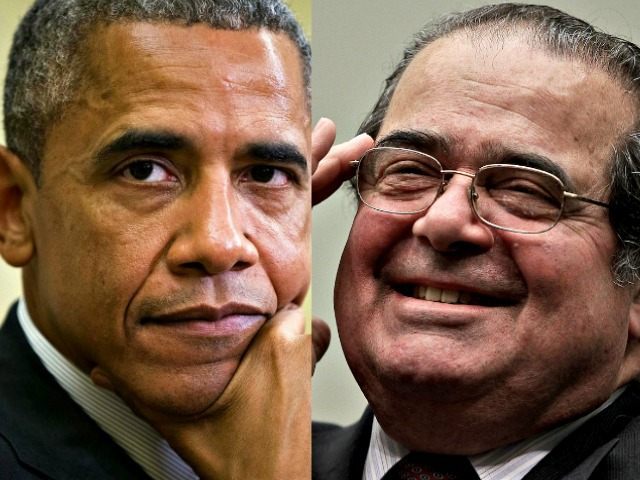The death of Supreme Court Associate Justice Antonin Scalia adds significantly more political drama to an already fractious election season. If President Obama pushes forward a nominee, as is expected, it would be the first time in modern history that a Supreme Court confirmation fight occured in the final year of a President’s tenure in office.
When a vacancy occurs on the Supreme Court, the President is charged by the Constitution with nominating a replacement, with the “advice and consent” of the U.S. Senate. The Senate has the power only of confirming or rejecting the President’s choice, not making a substitute nomination or appointment.
The modern confirmation process is that the nominee first appears before the Senate Judiciary Committee. After public hearings probing a nominee’s background and, to an extent, his or her legal philosophy, the Committee can then vote to recommend the nominee to the full Senate. The vote in the Committee is by a simply majority.
If the Committee votes to send a nomination to the full Senate, the full chamber can begin the process of confirmation.
A nomination for the Supreme Court is still subject to a “cloture” vote that formally ends the Senate’s debate over the judge. Sixty yes-votes are needed to end the debate. If 60 Senators vote to end the debate, the nominee is confirmed by a simple majority vote of the full Senate. Without the cloture vote, the nomination is stuck.
It is highly unusual to consider a Supreme Court nomination in an election year, especially when the President isn’t on the ballot. Justice Anthony Kennedy was confirmed to the Supreme Court in 1988, at the end of President Reagan’s second term. Kennedy, however, had been nominated in 1987 and only after the defeat of Robert Bork, who had been nominated in July, 1987.
Lyndon Johnson tried to nominate Associate Justice Abe Fortas as Chief Justice and name a new Justice to replace him in 1968, his final year in office. The nominations came as a result of Chief Justice Earl Warren’s retirement from the Court. Johnson’s push failed, however, even though the Senate was controlled by Democrats.
Warren’s replacement and a new Chief Justice were nominated by President Richard Nixon early in the following year, after he had won the Presidency.
Obama is not likely to forgo the opportunity to put a third Justice on the Court. It is within the Republicans’ power to block the confirmation, and there isn’t recent precedent that vacancies on the Court haven’t been filled in the final year of a President’s tenure.
However, because Justice Scalia was, in many ways, the intellectual foundation of the conservative block on the Court, the pressure to replace him with a liberal Justice will be intense. Waiting until Republicans potentially recapture the White House later this year would deny the left an opportunity to fundamentally change the direction of the Court.
There is also the possibility that President Obama could replace Justice Scalia with a recess appointment — but only if the Senate chooses to hold a formal recess during this year. The recess appointment would be temporary and still subject to full confirmation by the Senate, but the recess Justice would be able to participate in the Court’s deliberations and decisions.
President Eisenhower made three separate recess appointments to the Court, all of whom were eventually confirmed. President George W. Bush tried to make several recess appointments to lower Federal courts, but these were blocked by the Senate Democrats, who controlled the Chamber at the time.
At Saturday’s GOP debate, all Republican candidates said the nomination debate over Justice Scalia’s replacement should wait until after the Presidential election.
On Saturday evening, Senate Republican Leader Mitch McConnell said he believes the vacancy should be filled after the election, as well.
Saturday night, however, the White House said that President Obama would put forward a nominee in the very near future.
A heated Presidential campaign just became a lot hotter.

COMMENTS
Please let us know if you're having issues with commenting.